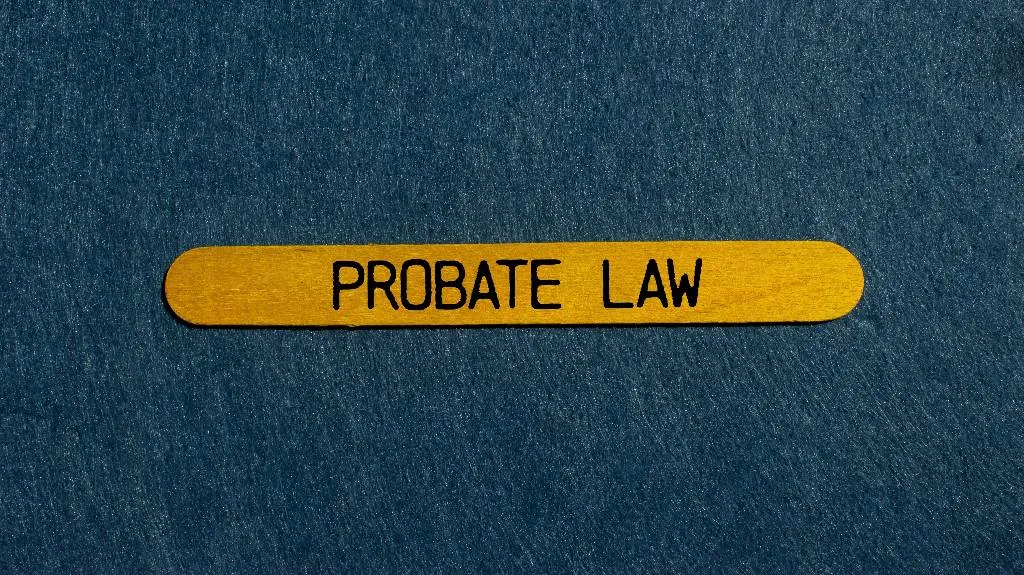Estate planning is a crucial aspect of financial management, ensuring the distribution of your assets according to your final wishes. A living trust is among the best estate planning instruments. This blog will give you a thorough understanding of living trusts, highlight crucial factors to take into account when drafting one, and provide essential information for estate planning.
What is a living trust?
A living trust is one that is created during your lifetime, and is also called an inter vivos trust. It can be revocable or irrevocable depending on the purpose of your trust. Upon your death, these assets pass to your chosen recipients. A living trust, as with a will, gives you the ability to manage and control your assets while you are still alive and offers a means of managing your estate after you pass, possibly avoiding the need for probate, unlike with a will which requires probate.
Get a Free Consultation Today
Important Elements of a Living Trust
Settlor or Grantor: This individual establishes the trust and moves assets into it.
Trustee: Is the individual or organization responsible for overseeing the trust. Initial assets are under the trustor’s jurisdiction as trustee, assuming the trustor chooses to also serve as trustee. Additionally, the trustor designates a successor trustee to take control in the event of their demise or incapacity.
Beneficiaries: These are the people or organizations who, in the event of the trustor’s passing, will inherit the trust’s assets, or receive some other benefit from the trust.
Trust agreement: A legal document which outlines the terms and conditions of the trust, including the management and allocation of the assets.
Important Things to Think About When Creating a Living Trust
Selecting a Trustee: Choosing the appropriate trustee is essential. Even if a lot of people designate themselves as the initial trustee, it’s crucial to select a trustworthy and qualified successor trustee. This could be a dependable friend, relative, or a qualified trustee like a bank or fiduciary firm.
Funding the Trust: You need to give the trust ownership of your assets in addition to just creating a living trust. Funding the trust is the process of transferring the titles of assets, such as real estate, bank accounts, and investments, to the trust.
Updating the Trust: You should periodically evaluate and amend your living trust, particularly following significant changes in your financial circumstances or important life events like marriage, divorce, or the birth of a child.
Tax Considerations: It’s critical to speak with a tax expert to comprehend the ramifications for your particular circumstances. An irrevocable trust can offer greater tax advantages than a revocable trust under certain circumstances.
Legal Requirements: Living trusts are subject to various state regulations; therefore, in order to make sure your trust is legitimate and functional, you need to consult with an estate planning lawyer who is knowledgeable about your state’s laws.
Crucial Information Regarding Living Trusts
Avoid Probate: One of the main advantages of a living trust is its ability to protect your wealth from probate, the legal procedure that confirms a will and administers your estate. Probate can be costly, time-consuming, and well-publicized. A living trust guarantees a prompt and discreet distribution of your assets.
Maintaining Control: If you have a living trust, you are in charge of your assets for the rest of your life. If your circumstances or wishes change, you have the option to modify the trust or cancel it completely.
Planning for Incapacity: A living trust has provisions for handling your assets in the event of your incapacitation. To make sure that your financial affairs are managed in accordance with your preferences, the successor trustee may assume responsibility for managing the trust on your behalf.
Privacy: A living trust is private, as opposed to a will, which is made public upon your passing. This implies that your estate’s specifics, including its distribution, are kept private.
Costs: Because of its intricacy and the amount of legal work required, setting up a living trust is usually more expensive than writing a will. Nonetheless, it might be a wise investment given the possible savings on probate expenses and certain tax advantages.
Retirement Accounts Unaffected: Living trusts typically have no effect on retirement accounts, including 401(k)s and IRAs. These accounts are not part of the trust and have designated beneficiaries. However, there are some situations where making your trust a beneficiary of these accounts is beneficial.
The Living Trust Creation Process Consultation: Speak with an estate planning lawyer first. They will walk you through the process and assist you in determining whether a living trust is suitable for your circumstances. Our attorneys are available for virtual, phone, or in-person consultations.
Creating the Trust Document: Your lawyer will create the trust document, describing its provisions, designating the beneficiaries and trustees, and specifying how the assets are to be handled and allocated.
Funding the Trust: You must move your assets into the trust after the trust agreement is finalized. To do this, you must retitle your assets in the trust’s name.
Evaluate and adjust: It’s critical to routinely assess your living trust and adjust it as needed to reflect any changes in your intentions or circumstances.
Frequently held myths regarding living trusts
Living Trusts Are Exclusively Used by the Rich: Living trusts can be helpful for anyone who wants to make sure their assets are managed and disbursed in accordance with their desires without the need for probate.
No Tax Savings with a Living Trust: A living trust can offer substantial tax advantages, including capital gains tax. It should be a component of an extensive estate plan that also consists of other tax-saving measures.
You Give Up Control Over Your Property: Setting up a living trust does not cause you to give up control over your property. You have complete control and are free to administer the funds however you see fit as the initial trustee.
Living Trusts Are Complicated: Although creating a living trust involves some complicated legal work, it may be done easily with the assistance of an expert estate planning lawyer.
A Living Trust’s Place in a comprehensive estate plan
A comprehensive estate plan consists of more than just living trusts. It functions best when used in conjunction with other estate planning instruments such as advance healthcare directives, durable powers of attorney, and wills. The way a living trust fits into the bigger picture is as follows:
Wills: You should have a will, even if you have a living trust. A will can designate a guardian for minor children and handle any assets not covered by the trust. It is also used to protect your trust to ensure that assets which were mistakenly not retitled into the trust, are distributed to the trust after probate.
Durable Power of Attorney: With this legal instrument, you can name a surrogate to handle your financial matters in the event of your incapacitation. The durable power of attorney covers assets not included in the trust, but the successor trustee of your living trust can manage the trust’s assets.
Advance Healthcare Directive: This is a legal document that names a proxy to make healthcare decisions on your behalf and states your preferences for medical treatment in the event that you are unable to do so for yourself.
Beneficiary Designations: Verify that your living trust is in sync with beneficiary designations on life insurance policies, retirement accounts, and other assets.
Typical Circumstances in Which a Living Trust Is Beneficial: In cases where a person has children from a previous marriage, a living trust can guarantee that assets are allocated in accordance with their intentions, supporting both the present spouse and children from past relationships.
Owners of businesses: A living trust can help guarantee a seamless transfer of ownership and administration in the event of your demise or incapacity, preserving the company and offering your family financial stability.
Real Estate in Multiple States: A living trust can help prevent the need for multiple probate proceedings if you own property in multiple states, making the transfer of real estate to your beneficiaries easier.
Privacy Concerns: Because a living trust does not become a matter of public record like a will, people who desire privacy can be assured that the specifics of their estate and the transfer of assets remain hidden.
Beneficiaries with Special Needs: A living trust can secure your beneficiary’s financial future without compromising their eligibility for government assistance.
How to Make Sure Your Living Trust Works
Entire Asset Transfer: Make certain that every important asset is moved into the trust. Real land, bank accounts, investments, and priceless personal belongings are examples of this. Make sure that beneficiary names for assets that are difficult to transfer, such as retirement funds, are in line with your trust.
Appropriately Documented Amendments: In compliance with state regulations, all modifications to your living trust must be duly recorded and signed. Ignoring to properly document modifications may lead to unintentional distributions or other legal problems.
Coordination with Your Estate Plan: Make sure that the entirety of your estate plan, including your living trust, is coordinated. This entails working in tandem with your powers of attorney, healthcare directives, and will to develop a comprehensive plan that honors your preferences.
Periodic Reviews: You should also discuss with your estate planning attorney the evaluation of your living trust on a regular basis, particularly following major life events like marriage, divorce, childbirth, death, or significant changes in your financial circumstances. Frequent upgrades guarantee that your trust is up-to-date and functional.
The Function of an Estate Planning Lawyer Professional Advice: Expert advice is available from an estate planning lawyer when establishing and managing a living trust. They guarantee that the trust is customized to your unique requirements and objectives while adhering to state legislation.
Personalized solutions: For complicated circumstances like blended families, beneficiaries with special needs, or business succession planning, an attorney can assist you with creating personalized solutions.
Legal Updates: Laws pertaining to estate planning may change. An attorney helps you make the required adjustments to be compliant and take advantage of new opportunities, as well as keeping you informed about legal revisions that may affect your trust.
Dispute Resolution: An estate planning lawyer can offer legal counsel and assist in swiftly resolving disagreements or challenges to your trust, safeguarding your interests and those of your beneficiaries.
In summary
A living trust is an effective estate planning strategy that provides many advantages, including privacy protection, control over your assets, preparing for incapacity, and the avoidance of probate. It’s not a universally applicable solution, though. Speaking with an expert estate planning lawyer can help you weigh the benefits and drawbacks of setting up a living trust in light of your particular circumstances.
Establishing a living trust requires a number of crucial actions, such as selecting a trustee, providing funds, and updating the trust over time. Comprehending these procedures and the crucial information regarding living trusts can assist you in making well-informed judgments regarding your estate planning.
You can feel more at ease knowing that your assets will be handled and distributed in accordance with your desires and that your loved ones won’t have to deal with the difficulties and expenses associated with probate when you include a living trust in your estate plan. A living trust is something you should think about as part of an all-encompassing strategy for managing your legacy, regardless of whether you are just starting to think about estate planning or want to update your present plan. You may make sure that your living trust is customized to your needs and easily included in your entire estate plan with the help of an estate planning attorney.
Living trusts are useful and adaptable instruments that can be tailored to different family dynamics and estate planning objectives. A living trust can help you take control of your inheritance, support your loved ones, and leave a lasting legacy that reflects your beliefs and wishes if you take the time to carefully establish and implement one.
Learn more about our living trust services here. Fill out the contact form at the bottom of this page or call (916) 333-7910 to schedule a free initial consult.
Filippi Law Firm, P.C., provides legal services in estate planning, probate, trust administration, trust litigation, and business law in the greater Sacramento area and Placer County, with a focus in Rocklin, Roseville, Lincoln, and Granite Bay.




